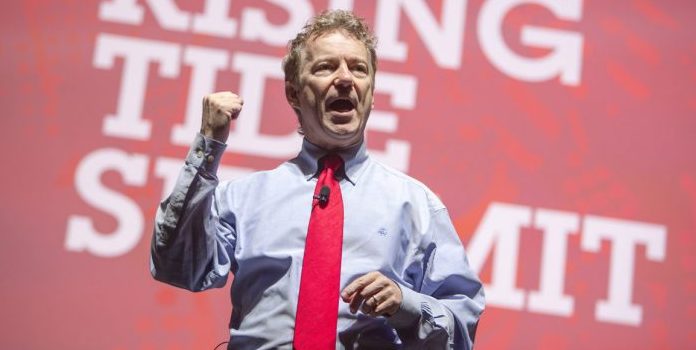Senator Rand Paul, R-Ky., yesterday announced that he will no longer be using YouTube to post videos, citing censorship by the Big Tech video hosting company.
“Today I begin my exodus from Big Tech, starting with the worst censor of all, YouTube,” said Paul. “As a libertarian leaning Senator, I think private companies have the right to ban me if they want to, however, those of us who believe that truth comes from disputation and that the marketplace of ideas is a prerequisite for innovation should shun the close-minded censors and take our ideas elsewhere, which is exactly what I’m doing.”
BREAKING NEWS: “So today, I announce that I will begin an exodus from Big Tech. I will no longer post videos on YouTube unless it is to criticize them or announce that viewers can see my content on https://t.co/6a4QK4YWzi” says Senator @RandPaul https://t.co/Mu1m18efRV
— Rumble (@rumblevideo) January 3, 2022
Instead, Paul will be using Rumble.com to post video content with occasional posts to YouTube just to criticize the company.
In August, Paul was suspended by YouTube after he posted a video that questioned the efficacy of cloth masks in containing the COVID virus.
“They don’t prevent infection,” Paul, who is a doctor, said in the video, according to Politico. “Trying to shape human behavior isn’t the same as following the actual science, which tells us that cloth masks don’t work.”
The research on cloth masks has had mixed results and the most recent vigorous research tends to side with Paul.
A recent randomized trial with 350,000 people in Bangladesh announced just after the Paul-YouTube fracas, found that surgical masks worked to stop the spread of viruses but cloth masks didn’t.
“A rigorous study finds that surgical masks are highly protective, but cloth masks fall short,” announced Nature.
“The study results prompted Monica Gandhi, an infectious-disease physician at the University of California, San Francisco, to switch from cloth masks,” added Nature.
But YouTube—or the Center for Disease Control— apparently didn’t read the report or didn’t like the results.
“I think this kind of censorship is very dangerous, incredibly anti-free speech, and truly anti-progress of science, which involves skepticism and argumentation to arrive at the truth,” Paul said in a statement after the video was banned by YouTube.

